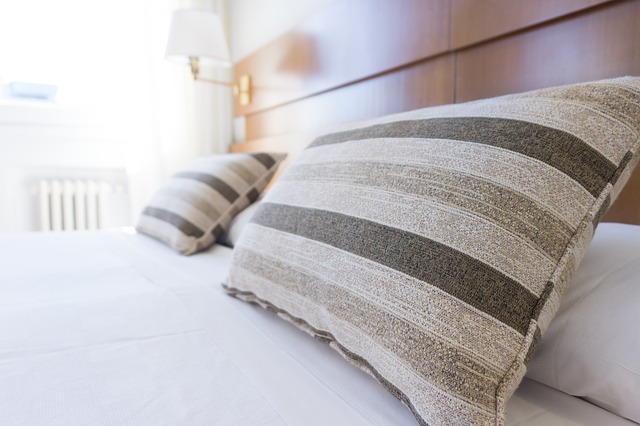Proper due diligence is necessary before you finalize the deal for the next home. It’s easy to overlook structural, electrical, or appliance problems when finalizing a new home.
We all have emotions, but how can you tell if your possible new home has significant problems unless you get an Alberta home inspection?
Here is everything you need to know about getting a home inspection before reaching out to your broker to inquire about the various home insurance providers in Alberta.

What is a home inspection?
A home inspection is the act of examining most (but not all) systems and structural elements of a house. Most residential properties, including townhouses, detached homes, and apartment complexes, are eligible for inspection. Except for those working in British Columbia and Alberta, home inspection professionals don’t require a license in Canada. The customer can arrange inspections with an inspector of their choice.
If you choose to be there for the inspection, you’ll have the chance to ask questions that come up. You’ll get a document summarising the inspector’s findings after the inspection. Based on the information in the report, you may decide to change your mind about making an offer on the property.
The inspection fee varies according to the size and complexity of the property, but you can expect the cost to be around $500. While this may initially seem like a steep amount, it can save you thousands of dollars in future repairs.
What does a home inspection include?
The weather in Canada undergoes considerable changes throughout the year. So it’s best to hire an experienced home inspector who understands the local dangers. A home inspector in Alberta likely focuses on the home’s exterior for water ingress and the basement for mold.
In addition to location-specific assessments, all home inspections should be broad enough to detect key issue areas. Your home inspector will check for the following items:
Exterior checking
Home exterior inspection checks for cracks, siding damage, and signs of insect infestation on exterior walls. The inspectors will also inspect the property’s landscaping, paying particular attention to the grading and drainage.
Since egress points (i.e., windows and doors) may be costly to replace, your home inspector should determine their estimated lifespan and offer an estimate for replacing them. The inspection also involves inspecting foundations for cracks or settling.
Also your home inspection should cover the roof for signs of water ingress, shingle deterioration, and gutter damage. The home inspector should also evaluate the roof’s remaining life as it is one of the more expensive things to replace.
Interior checking
The home inspection will take a long time inside the property. Your inspector will visually assess the plumbing system for evident leaks at all faucets. Additionally, they’ll determine the kind of plumbing installed in the house and the position of the main shutoff valve.
The interior checking also covers checking the complete electrical system, focusing on the main electrical panel. The inspector will identify the kind and condition of the wiring and will verify the functioning of ground fault circuit interrupters in critical places.
The inspector will evaluate each component’s age and estimated life, giving particular attention to any areas of concern, and inspect the house’s water heater and HVAC system.
Additionally, your inspector will assess the home’s energy efficiency by identifying any leaks in the heating/cooling ducts.
They would also inspect bathrooms for leaks, adequate ventilation, and securely attached fixtures. Additionally, your home inspector may assess the caulking around the tiles, as well as the water flow and pressure, basements and crawl spaces for signs of dampness or vermin and any insulation or foundation structure problems.
Finally, your inspector will check if other safety systems, such as carbon monoxide alarms, fire alarms, and sprinklers, are working properly.
Home inspection Alberta — how do you find a qualified home inspector?
There has been a movement for regulation inside the business during the last decade. The CAHPI is in charge of providing the status of “National Certificate Holder” or “Registered Home Inspector,” and members of CAHPI must complete specific requirements.
Having a home inspection performed might be one of the smartest choices you make throughout the home buying process; yet, selecting the right home inspector can be difficult.
You want to engage a skilled inspector to inspect your house and point out any issues. They must be knowledgeable in plumbing, electricity, HVAC, and structure, among other things.
Registered home inspectors who are members of CAHPI must also adhere to the organization’s rules of practice and code of conduct and participate in continuing education to remain updated on developments in building technology.
For more particular advice on selecting an individual, it pays to do due research again. Your primary concern at this point should be the inspector’s training and experience with this type of property.
Home inspections and insurance
If you decide to proceed with the purchase after receiving the inspection report, the parties must determine who will bear the expense of any required replacements and how this would affect the property’s worth.
The majority of purchasers are unable to pay for a house entirely and will want the assistance of a mortgage provider; in most situations, a bank. Most banks demand homeowners’ insurance and an appraisal before releasing cash, while some may additionally require a home inspection to protect their investment in your house.
However, the home inspection report has some extra advantages. For example, your insurance company would want to know whether the property has any mold damage. Your house insurance rates may go down if you solve these issues.
It’s essential to choose a flexible home insurance company that can accommodate your house remodelling needs. With home insurance providers in Alberta, you can secure your house with an estimate, purchase a policy, and file a claim online. You can tailor your coverage and deductibles to meet your specific needs.
Conclusion
While new houses in Canada often have some level of warranty protection, it is always possible for one of the hundreds of components that make up a new home to be defective. Obtaining a home inspection for your new home enables you to anticipate any potential issues.






